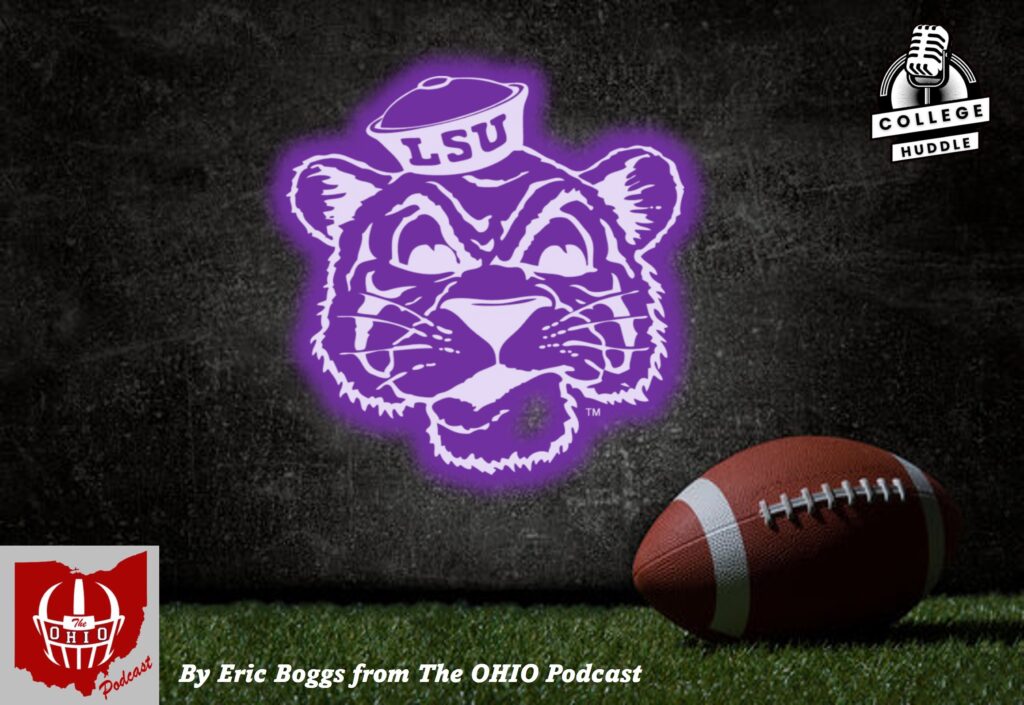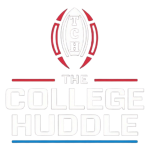
Brian Kelly Recruiting Message
By Eric Boggs from The OHIO Podcast
LSU Tigers head coach Brian Kelly recently made some strong statements about the program’s stance on not engaging in buying players. However, On3’s Andy Staples believes this message was not the best approach to take in the current era of NIL.
During his show, Andy Staples On3, Staples explained why Kelly’s message missed the mark and suggested a better way to convey the same idea. “That’s not how you say it in 2024, Brian Kelly,” Staples remarked. “Because everyone is buying players. There’s nothing inherently wrong with it. It’s perfectly legal. When you say that, it gives the impression that you’re financially constrained. People think you can’t afford anyone or that you’re not willing to adapt to the current landscape.”
One significant concern Staples has with Kelly’s comments relates to the reasons behind his move to LSU. While Kelly achieved success at Notre Dame, he left for LSU because he believed it offered better opportunities to compete for national championships.
“People think you left Notre Dame because Notre Dame operates differently, with higher academic standards and a focus on blending players with regular students. These are intentional choices Notre Dame makes, and if you’re there, you accept them for a reason. But you chose LSU because you wanted to vie for national titles,” Staples noted.
“LSU does what’s necessary to compete for championships, just like Ohio State, Georgia, and Alabama. And now, you’re saying you’re not willing to do what it takes? You claim you’re not interested in buying players. LSU invested $10 million annually in you to win national titles, not to shy away from competing.”
Brian Kelly’s remarks on recruiting defensive linemen through the Transfer Portal specifically sparked controversy. He explained LSU’s approach to recruiting and why they hadn’t acquired more defensive linemen despite the need.
“We were exploring the transfer portal for defensive linemen, but it hasn’t yielded much success. We prioritize recruiting, developing relationships, and nurturing talent. We’re not in the business of purchasing players. Unfortunately, some players are only interested in being paid,” Kelly stated.
“We focus on developing players like Jayden Daniels, Malik Nabers, and Brian Thomas, who were all drafted this year. If you value our player development, championship culture, and NIL opportunities, LSU is the right place for you. But if you’re solely interested in financial gain, this isn’t the right fit.”
Staples acknowledges Kelly’s point but believes it could have been communicated better. “Kelly wasn’t entirely wrong. If he had said, ‘We’re not interested in this specific type of player in this market,’ it would have been clearer and more reasonable.”
One reason Staples supports Kelly’s decision not to pursue players aggressively in the Spring Transfer Portal is the limited talent pool available, which drives up prices. “In the spring, quality defensive linemen are scarce, leading to inflated costs for acquisitions,” Staples explained.
“Attempting to secure a defensive tackle in the spring transfer portal is akin to searching for essentials just before a hurricane. It’s costly and often not worth the premium. LSU’s failure to address this issue earlier, coupled with previous recruiting lapses, has left them vulnerable.”
While there are valid reasons not to overspend on transfer players, Staples believes Kelly’s messaging fell short, particularly given LSU’s circumstances. “One concern is that players might question why certain individuals are paid more, leading to locker room tension and potential contract renegotiations,” Staples pointed out.
“Kelly should have focused on these issues instead of outright rejecting the idea of buying players. Acknowledging the strategic approach to acquisitions would have been more prudent.”





